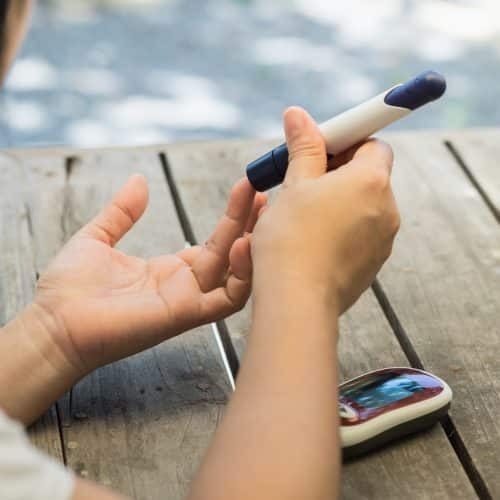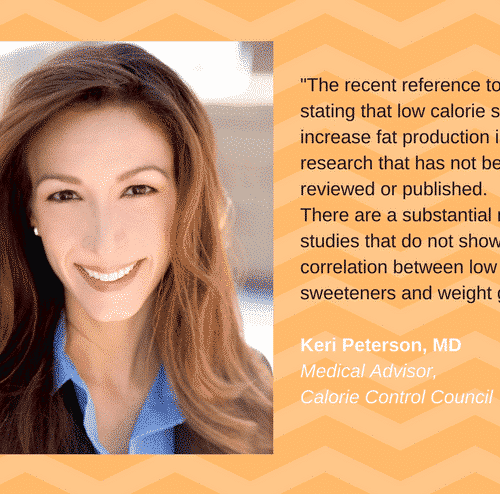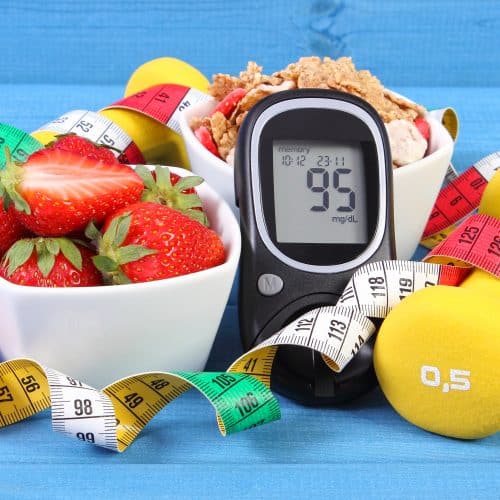
Neva Cochran, MS, RDN, LD –
November is a time to focus attention on diabetes, its prevention and treatment. About 30.3 million people or 9.4% of the U.S. population are living with diabetes while an estimated 84.1 million Americans 18 years or older have prediabetes.
Diet is an essential component of diabetes management. According to the position paper of the Academy of Nutrition and Dietetics: The Role of Medical Nutrition Therapy and Registered Dietitian Nutritionists in the Prevention and Treatment of Prediabetes and Type 2 Diabetes, “medical nutrition therapy (MNT) provided by registered dietitian nutritionists (RDNs) is effective in improving medical outcomes and quality of life, and is cost-effective. MNT provided by RDNs is also successful and essential to preventing progression of prediabetes and obesity to type 2 diabetes.” (1)
While most individuals with diabetes have a moderate intake of about 45% of calories as carbohydrate, research on the ideal amount of carbohydrate for those with diabetes is still inconclusive. Monitoring carbohydrate intake and blood glucose is essential for maintaining glucose control. (2) Ideally, eating fewer foods with refined carbohydrates and added sugars and more carbohydrates from vegetables, fruits, dairy and whole grains is preferred.
What the Science Says
The American Diabetes Association supports the use of LNCS, stating “they may have the potential to reduce overall calorie and carbohydrate intake if substituted for caloric (sugar) sweeteners and without compensation by intake of additional calories from other food sources. Nonnutritive sweeteners are generally safe to use within the defined acceptable daily intake levels.” (2)
An international scientific panel of health experts met in Lisbon, Portugal in July 2017 to develop a consensus on the use of low- and no-calorie sweeteners (LNCS) as substitutes for sugars and other caloric sweeteners. By analyzing the evidence related to the role of LNCS, their goal was to develop a useful, evidence-based reference to help reduce sugar consumption consistent with current international public health recommendations. They concluded that replacing caloric sweeteners with LNCS in weight loss plans might aid in weight loss. In addition, their use in diabetes management may contribute to better glycemic although results have been modest. The panel proposed that foods and beverages with LNCS could be included in dietary guidelines as alternatives to products sweetened with free sugars. (3)
In a 2013 scientific review of the role of LNCS in diabetes, the authors noted that research finds LNCS play an important role in diabetes prevention and management. Because added sugars are a source of increased carbohydrate intake, using LNCS is a safe and easy way to reduce carbohydrate consumption for those with type 2 diabetes so they can better manage blood glucose levels and lose weight. Substituting sugars with LCNS allows more flexibility in accommodating their health goals and personal dietary preferences. (4)
What a RD, CDE Recommends
In a recent article (5) by registered dietitian and certified diabetes educator, Kathy Warwick, she outlines the nutritional management of diabetes throughout the lifecycle. According to Warwick, there are a number of eating patterns that are acceptable for the management of type 2 diabetes. Nutrition therapy for adults involves meal planning that takes carbohydrates, fats, and protein into consideration. The amount of carbohydrate in meals can vary from 39% to 57% of energy without negatively affecting glucose control. As far as LNCS use, she suggests that FDA-approved nonnutritive sweeteners may be helpful for weight reduction and are safe to use within the acceptable daily intake range.
What Diabetes Organizations Advise
Leading diabetes centers and organizations all support the inclusion of LNCS as part of a healthful eating plan for diabetes management.
Sugar substitutes can be very useful to people with diabetes according to Gillian Arathuzik, RD, CDE with the Joslin Diabetes Center. In an article on the Joslin website, she recommends using either aspartame or sucralose in moderation depending on a person’s taste preference. (6)
Likewise, the American Diabetes Association confirms the safety and usefulness of LNCS for people with diabetes on their website. They support use of foods and drinks with LNCS as another option that may help curb cravings for something sweet. (7)
Finally, the American Association of Diabetes Educators has two LNCS tip sheets available on their website, one with frequently asked questions (8) and the other featuring a chart listing the amount of sweetener packets and cans of diet soda that can be consumed without exceeding the Acceptable Daily Intake. (9)
In summary, scientists, dietitians and noted diabetes organizations all support the use of low and no calorie sweeteners in moderation as part of a nutrient-rich eating plan for those living with diabetes. As health professionals it is reassuring to have options to recommend to clients to increase eating enjoyment and manage diabetes.
References:
- “Position of the Academy of Nutrition and Dietetics: The Role of Medical Nutrition Therapy and Registered Dietitian Nutritionists in the Prevention and Treatment of Prediabetes and Type 2 Diabetes” J Acad Nutr Diet 118:343, 2018
- “Lifestyle Management: Standards of Medical Care in Diabetes – 2018” Diabetes Care 41(Suppl. 1):S38, 2018
- “Ibero–American Consensus on Low- and No-Calorie Sweeteners: Safety, Nutritional Aspects and Benefits in Food and Beverages” Nutrients 10 818, 2018
- “The Role of Low-calorie Sweeteners in Diabetes” US Endocrinology 9:13, 2013
- “Diabetes Management & Nutrition Guide: Diabetes Nutrition Throughout the Lifecycle” Today’s Dietitian 20:33, 2018
- “The ABC’s of Sugar Substitutes” Joslin Diabetes Center website accessed 10-18-18
- “Low-Calorie Sweeteners” American Diabetes Association website accessed 10-18-18
- “Translation of Research to Help Answer Patient Questions About Sweeteners” American Association of Diabetes Educators website accessed 10-18-18
- “Acceptable Daily Intake (ADI) in Packs of Sweetener Compared to Cans of Diet Soda” American Association of Diabetes Educators website accessed 10-18-18

Neva Cochran, MS, RDN, LD is a registered dietitian nutritionist based in Dallas. She serves as a nutrition communications consultant to a variety of food and nutrition organizations, including the Calorie Control Council. She is passionate about promoting fact-based food and nutrition information to help people enjoy nutritious eating. Follow her on Twitter @NevaRDLD and check out her blog at www.NevaCochranRD.com.




